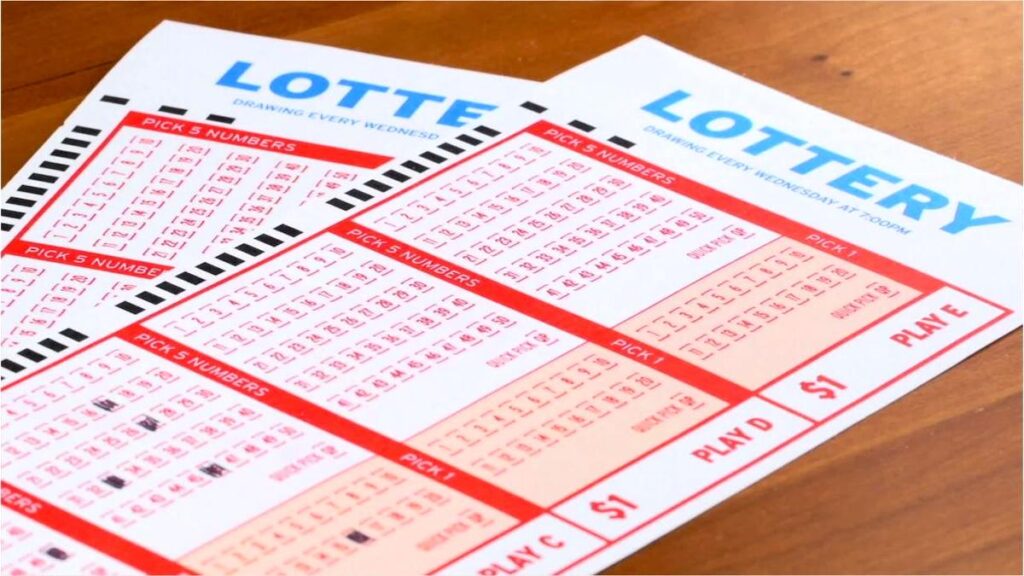The Enchanting Pull of Lotto Draws
Lotteries have a way of captivating people, don’t they? It’s like the entire world experiences lotto fever every now and then. Whether you’re in bustling Beijing or peaceful Cornwall, the dream of a life-changing win is something that appeals to many. In this article, we will discuss interesting facts about lotto and winners.
But what is it about this game of chance that fascinates us so? Maybe it’s the stories we hear of lives transformed in an instant. Or perhaps it’s the sheer simplicity of it all – pay a pound, choose your numbers, and wait with bated breath. The lottery knows no boundaries or class distinctions. It speaks a universal language – the language of hope.
Historical Insights: From Ancient China to European Salons
Let’s take a trip back in time, all the way to Ancient China around 200 BC. Imagine this: the construction of the Great Wall. And how was it funded, you might ask? Through keno slips, which were essentially the lotto tickets of that era. Quite clever, don’t you think? Bet on numbers, and the government builds a wall. A win-win situation for everyone.
Now, fast forward to medieval Europe, where the Dutch and Belgians caught on to the lotto trend. They came up with the idea of selling tickets and offering cash prizes. It was all done in a transparent and honest manner, with the money often going towards helping the less fortunate. That’s where the word ‘lottery’ originated from – the Dutch word ‘lot’, meaning fate.
And let’s not forget about good old Voltaire. He spotted a loophole in the French lottery system that even the most scrupulous accountant would blush at. Voltaire and his clever pals made a fortune, allowing him to focus on his writing without worrying about where his next meal would come from.
Astonishing Lottery Statistics: More Than Just a Game
Now, let’s delve into some statistics – not just any statistics, but lottery statistics. Did you know that people spend more money on lottery tickets than on books, movies, and other forms of entertainment combined? It’s quite mind-boggling when you stop to think about it. And here’s a startling fact – there are numerous unclaimed winnings out there. It seems some individuals are simply too busy to check their tickets!
Ah, the infamous Powerball – you’ve surely heard of it. It started as a small-time American game and has now become a colossal phenomenon, with draws that keep the whole world on edge. The jackpots are nothing short of staggering – we’re talking billions with a ‘b’.
Winners’ Circle: Tales of Lotto Winners
Now, let’s shift our focus to those fortunate souls who have experienced life-altering wins. There’s the gentleman who decided to fill his garage with a fleet of shiny cars after his big win – because why settle for one car when you can have four and a half, right? And then there’s the generosity that often accompanies these wins. Many winners choose to share their newfound wealth with family, friends, and even strangers.
But it’s not always about the extravagant displays of wealth. Some winners prefer to maintain a sense of normalcy and continue with their regular nine-to-five jobs. For them, it’s not solely about the money. It’s about holding onto their identity and embracing the idea that they are still the same person, even with a significantly larger bank balance. Unfortunately, there are also tales of winners who experience a “lottery curse,” where they find themselves regretting their lucky numbers. It’s a sad reality that money doesn’t always bring happiness and can even bring about a new set of troubles.
Lottery’s Societal Impact
Now, let’s discuss how the lottery contributes to society. It functions as a voluntary tax, with individuals willingly spending their money in pursuit of a dream, and that money goes back to the government. Lotteries often help fund various public amenities such as parks, schools, and emergency services. It’s worth noting that while the older demographic, especially those between the ages of 45 and 54, tends to buy more tickets, lotteries have a broad appeal across different age groups. People are willing to spend a substantial amount of money on lottery tickets, and this raises questions about the potential impact that money could have if redirected elsewhere.
Moreover, lotteries also play a significant role in supporting charitable causes. Lottery funds have been utilized in various ways, including supporting the creation of award-winning films. So, it’s not just the ticket buyers who can dream of Hollywood glamour – a slice of that lottery cash can even find its way to the silver screen.

Unusual and Wacky Lottery Facts
The world of lotteries is filled with peculiar anecdotes and remarkable occurrences. Imagine this: a bartender in Oregon receives a pair of Keno tickets as a tip, and lo and behold, one turns out to be worth a significant sum of money. Now *that’s* a tip to remember! Then there’s the story of an entire town in Spain that won the jackpot, leaving one unfortunate fellow feeling quite left out.
Lottery funds are put to exceptional use as well. From supporting national landmarks to aiding athletes and artists, lottery money has played the role of a fairy godmother for various ventures and endeavors.
The ‘Luck’ Factor in Lotteries
Luck, that elusive concept. Some individuals seem to have more than their fair share, like the man who narrowly escaped death seven times before finally hitting the jackpot in his seventies. Or the Australian who fought through adversity, won a car on a scratch card, and then landed a substantial cash prize while reenacting his initial win on live television. If that’s not luck, what is?
The Lottery – A Mosaic of Dreams and Chance
It’s a tapestry of dreams, a fusion of chance and fate carefully interwoven. It has a peculiar way of touching lives, turning ordinary moments into something extraordinary, and keeping the flame of hope alive within our hearts.
The lottery is more than just numbers and draws. It’s about the stories it creates, the community projects it supports, and the dreams it ignites. Whether it’s a lighthearted indulgence after a long week or an opportunity to dream big, the lottery has become an integral part of our lives. It serves as a reminder that sometimes, against all odds, even the most improbable dreams can come true with the right ticket in hand.
More interesting facts about Lotto or Lottery
- First Recorded Lottery in China: The first known instance of a lottery was in China between 201 and 187 BC, possibly to fund government projects like the Great Wall of China.
- Americans Spend More on Lottery Than Other Entertainment: In 2014, Americans spent $70.1 billion on lottery tickets, more than on sports events, books, video games, cinema tickets, and music combined.
- Generosity Leads to Loss of Winnings: Many lottery winners lose their winnings due to excessive generosity, giving away money to family and friends.
- Unclaimed Winnings: A significant amount of lottery winnings go unclaimed each year. In 2017, about $2.89 billion worth of prizes were not claimed.
- Most Popular Draw Ball: The number 38 is the most frequently drawn ball in lotteries.
- Illegal Ticket Purchase Consequences: In 2005, a woman in Oregon lost her $1 million winnings because she purchased the ticket illegally using a deceased person’s credit card.
- Multicultural Roots of ‘Lotto’: The term ‘lotto’ has roots in multiple cultures. It originated from the Dutch term ‘lot’, meaning ‘fate’, and the first post-Roman Empire lottery was held in Milan, Italy in 1449.
- Vatican City Lotteries: Even the Vatican City has had lotteries, with the first official Roman lottery permitted in 1732. Pope Francis held a lottery in 2015, with proceeds going to charity.
- Lottery Winners Often Keep Their Jobs: Contrary to popular belief, about 48% of big lottery winners continue working in their day jobs.
- Tax-Free Winnings in Some Countries: In countries like the UK, France, Sweden, and Germany, lottery winnings are often tax-free.
- First Lottery Instance in Ancient China: The earliest recorded lottery was in ancient China, with keno slips dating back to 201 and 187 BCE.
- Lottery Revenue for Good Causes: In the UK, 25% of the money spent on the National Lottery goes to charitable causes.
- Lottery-Funded Movies: Films funded by the National Lottery, like “The King’s Speech”, have won numerous Academy Awards and BAFTAs.
- US Lottery Demographics: The lottery is most popular among Americans aged 45-54.
- Lottery vs. Income Tax Revenue: In 2009, 11 US states received more revenue from lottery tickets than from citizens’ income taxes.
- Average American Lottery Spending: The average American spends about $218 on lottery tickets each year.
- Slim Chances of Winning: The odds of winning major lotteries like Powerball and Mega Millions are nearly 1 in 300 million.
- Largest US Lottery Jackpot: The biggest lottery jackpot win in US history was $1.59 billion in January 2016.
- Scratch-Ticket Millionaires: Approximately 37,000 people have become millionaires through scratch tickets.
- Downsides of Winning: Winning the lottery can lead to negative consequences, including scams, pursuit, and even the so-called “lottery curse”.
- Bankruptcy Among Winners: A significant number of lottery winners go bankrupt within three to five years of winning.
- Generosity Leading to Bankruptcy: Many lottery winners go broke due to their generosity rather than reckless spending.
- Bankruptcy Rates Among Winners: Estimates of bankruptcy among lottery winners range from 44% to 70%.
- Federal Tax on Winnings: In the US, the federal government takes about 24% of lottery winnings.

